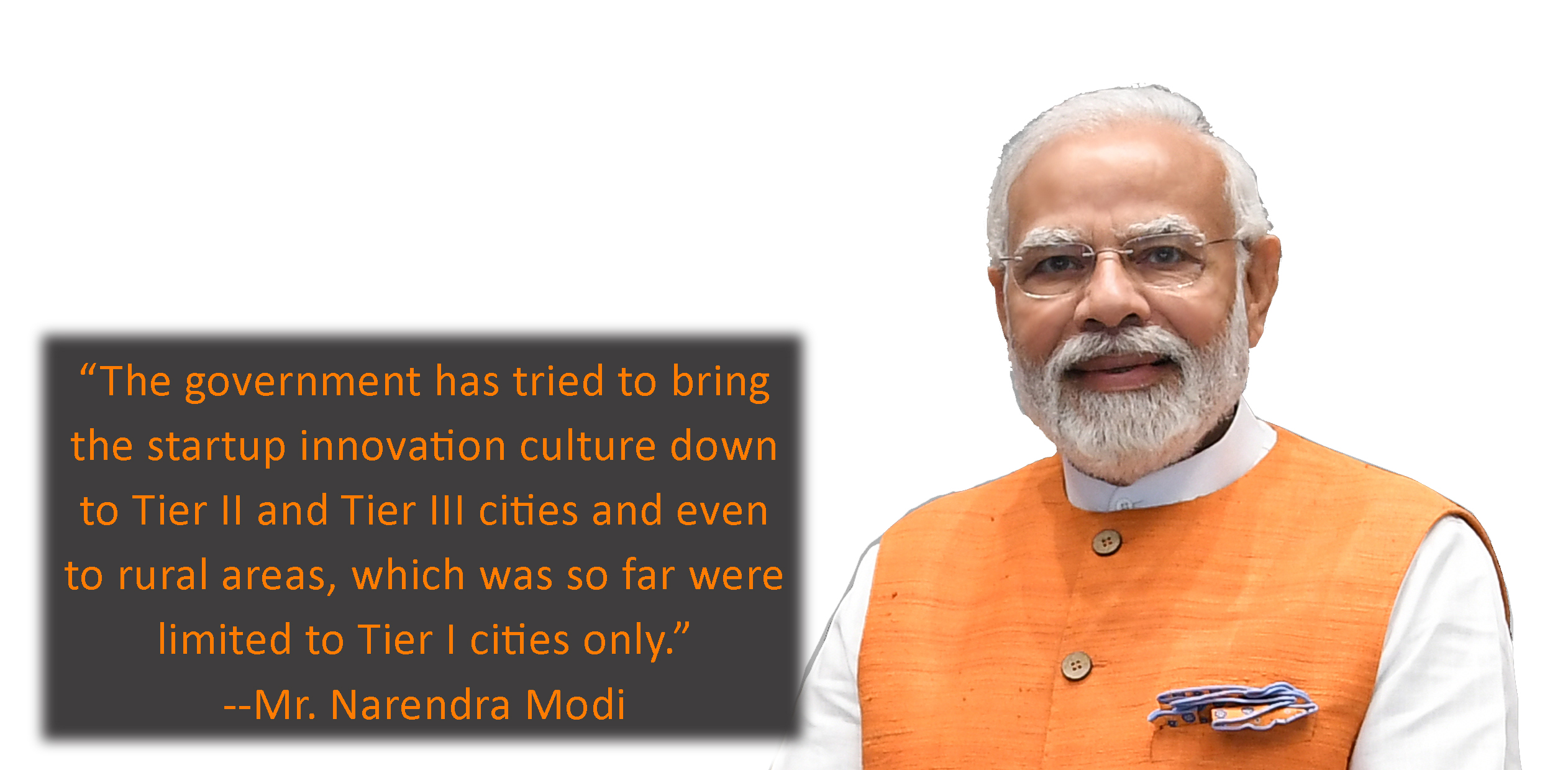50%or close number of all startups are now lying in the tier II and III towns, mostly tech driven companies are emerging out of these small towns and are fueling country’s economic growth and also bringing about a socio-economic change at the global scale. Evolving cultures with in these newly formed entities ensuring retention of employees, never say die attitude, a dream to become a leader in their spheres and management of scale with precision cannot go unnoticed.
Bakhtiyar Khan, the Director at Polaris Incubation center, talks about how the youth is taking advantage of the better infrastructure, favorable working conditions, improved government policies, availability of funds, faster connectivity, tax incentives and increased awareness among youths is mainly behind this phenomenal upsurge.
Most of these startups are solving local problem
This is one of the biggest reason for their success that they are strictly focusing on the local issues, expansion may be on cards for most of them but to face each and every customer query and improve thereof is on the top of their agenda. Be it manufacturing, services or technology, all startups are gaining speed in small towns due to availability of the customers for all of them
Most of these startups are finding economic talent pool
Thanks to the education boom of in the last decade, there are colleges in every nook ad corner of each district in the country offering talent pool within the same city. This on the one hand worked in reducing the burden on the metro cities of every expanding population explosion due to immigration for jobs and on the other hand started generating much needed employment for the locally educated youth at good scale.

Lower cost of survival
Reduced rental rates is the first and single most important aspect a startup worries about at the early stage, none of the metro cities in India can match the rentals in smaller tier II and III towns, although there are a very few options to chose from because the number of commercial office spaces are usually low in these cities but the rentals are really half or even lesser in these areas. For a early stage startup this become a boon for survive longer and try more.
Lower cost of living
At the same time it is much easier for the workers or employees working in these startups to live in the smaller tier II and III towns as compared to the metro cities and large towns. Room rentals are anyways higher but the other killing factor is the commuting distance, increasing the cost of living on one hand and deteriorating the standard of life due to stress and pollution related illnesses on the other. Whereas comparatively the smaller towns offers lower cost of living, very low commuting time and expenditure.
For any startups, three factors are essential — capital, courage, and connection. And, under the Startup India campaign, we have tried to address all the three. -PM Modi
Change in customers behavior
The demand for local goods, services and speed has ever increased to new heights, the onset of faster delivery models and effective hyperlocal marketing techniques has helped the locals meet locals. This in terns increased the customer’s appetite and he is asking for more and better. Moreover the customer base in the tier II and III towns had seen a mega burst after the advent of technology connecting them with the sellers, today more than 50% of the modern online sales is happening in the tier II and III towns as reported by all the major tech driven online retailers.
Digitization at all levels has helped
The lack of education and limited access to the technology and digital resources was stopping the remote customers joining the retail revolution, with efforts of the technology companies to make sure that the remotest of the village is connected with the data network has helped in s sudden rise in the online customers.
Tier II and III gold rush
India now supports the world’s 3rd largest startup ecosystem in terms of number of emerging startups, after the USA and China. In the past 6 years, startups have managed to create 7.68 lakh jobs, with a 14% rise during the pandemic alone.
Several tier 2 cities, namely Jaipur, Indore, Ahmedabad, Kanpur and Surat, have reported a massive 42% economic growth.
In fact, emerging cities, such as Chennai, have already transformed into software hubs, with Pune supporting several unicorns (like Firstcry) already. No wonder almost half of the Indian startups are situated in non-metro cities.
Even on the funding end, Tier II/III cities’ startups have been raising capital at increasingly larger valuations, especially in agritech, foodtech, fintech, edtech, and D2C segments, with no signs of relenting.
Hence, if anything, Tier-II and III cities are poised to become the new growth vectors in India, backed by low operating costs, experienced professionals, localized solutions, and the digital revolution.
For more updates please subscribe to our newsletter.
Polaris Educational and Cultural Trust the parent body of Polaris Academy of Excellence and Polaris Incubation Center is running one of its kind Free SAT classes for USA college admissions in Graduation. Polaris Incubation Center is the best incubation center in Aligarh, working closely with small and regional colleges to provide them the best business incubator in Aligarh. Polaris Incubator, work on startup ideas, the ideas those are innovative and can be developed into a real business. Polaris Incubator, the first private Incubation center in Aligarh work closely with young entrepreneurs while they are in their college and train them on entrepreneurship skills and motivate them to join the vision of new India with their own startups. PAE Stack is employability and entrepreneurship development programs run by Polaris within the colleges as well as outside to make the youth of the region more employable and better placed for entrepreneurship ventures. For more details and information about the programs run by us for schools, colleges and communities please get in touch with us by subscribing to our newsletter.




